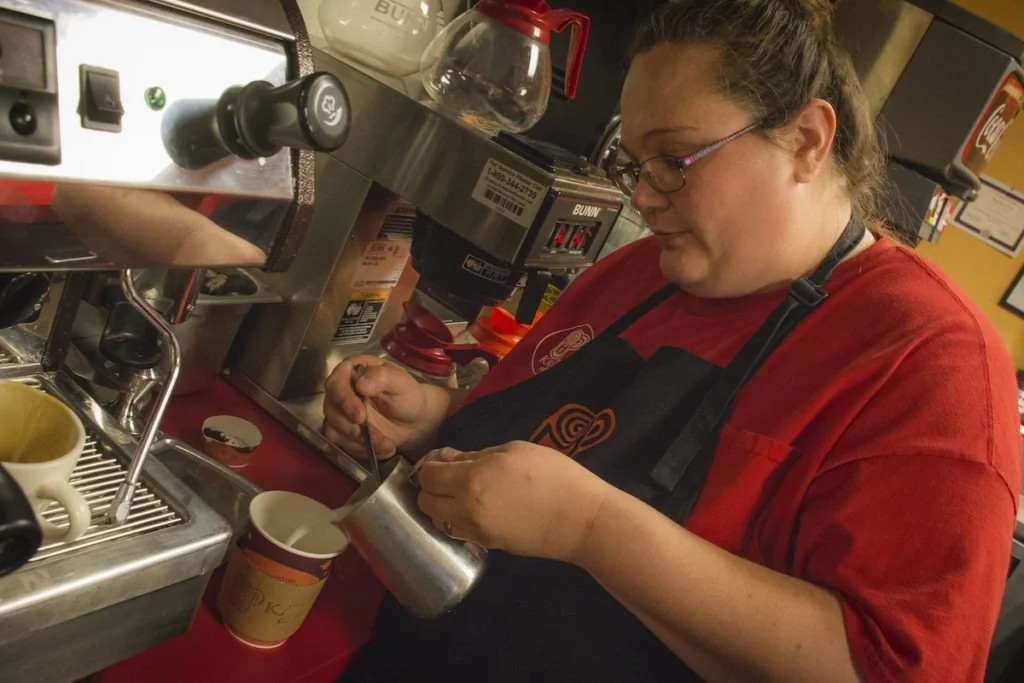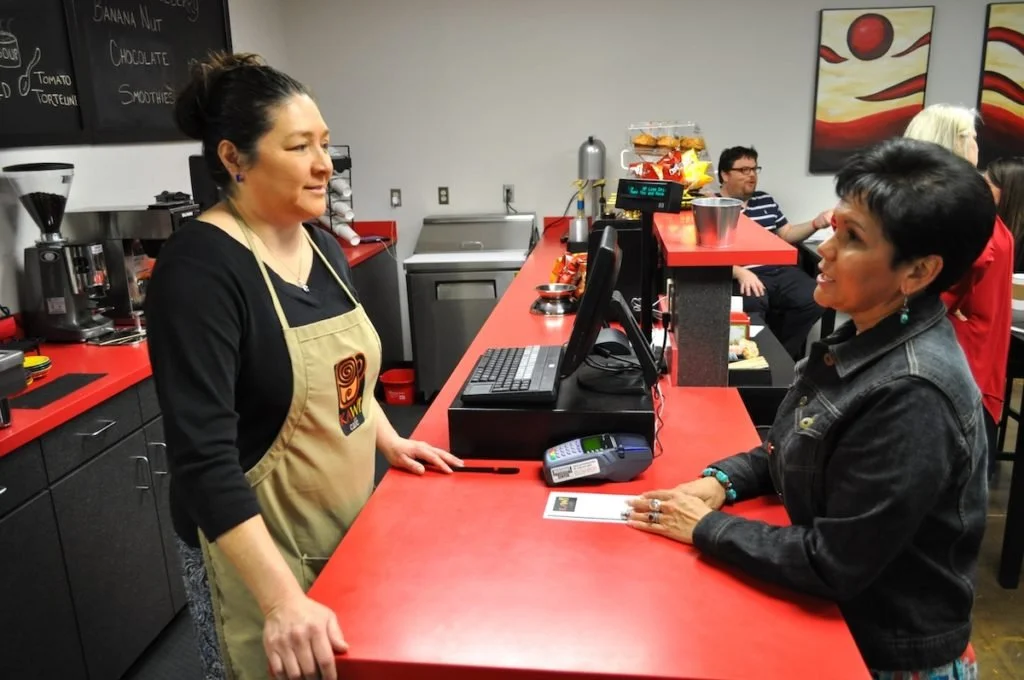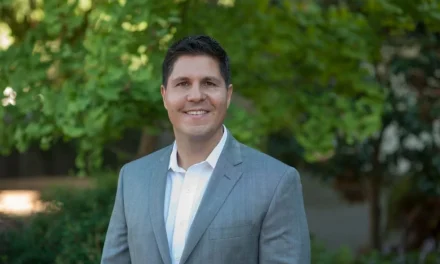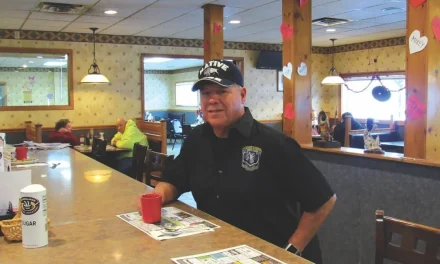Kawi Café gives new meaning to a caffeine “pick me up.” Kawi, which means “coffee” in Cherokee, is more than a neighborhood café in Tahlequah, Oklahoma. It’s a place for aspiring entrepreneurs to receive hands-on experience in management and the restaurant industry, while crafting business plans of their own.
The Cherokee Nation conceived of the concept when Tribal casinos identified a need to foster more food service professionals for Cherokee businesses. At Kawi Café, employees create menus, manage staff and purchase orders, handle cash and transactions, and interact with customers on a daily basis. Participants additionally receive financial education and guidance on creating business and marketing plans.
“Some graduates have successfully opened up their own businesses. Others realized that they didn’t want to open a business, and we view that as a success as well,” Stephen Highers, who oversees the business incubator program at Kawi Café, told Native Business Magazine.
Two years ago, the Kawi Café entrepreneurship program — which does not have an official name — shifted its focus, electing to expand opportunity for Cherokee Nation citizens who were recently released from incarceration or rehabilitation. Coordinating with the Cherokee Nation Reintegration (Re-Entry) Program and the Tribe’s Small Business Assistance Center, Kawi Café acts as a catalyst for ambition and self-sovereignty. The program continues to promote entrepreneurship — “but now we’re working with people who are reintegrating into society after prison,” Highers said.
[bctt tweet=”Kawi Café makes the transition back into the workforce smoother through structure and support.” username=”nativebizmag”] “They need that six months of steady employment and job training, and someone to help them incorporate back into the ‘real’ world,” Highers said.”
To qualify for the Kawi Café entrepreneurship program, individuals must participate in the reintegration program, also known as the Coming Home Program, and be at least three months out of prison.
“They’re still self-identified as entrepreneurs, and entrepreneurship lends itself well to the formerly incarcerated and felons, because there is not a lot of opportunities for them in the corporate world,” Highers explained. “A company may have a policy not to hire felons, or perhaps the individual doesn’t possess a necessary skillset. Entrepreneurship is a good way for them to make a living.”
Former Kawi Café employee Dusty Rollice, who now manages a restaurant on the outskirts of Tahlequah called The Wheelhouse, credits the program for her professional growth and stability. “It definitely gave me the opportunity to re-integrate into the community and get around people. It taught me customer service, responsibility and public relations. I learned inventory, open and close paperwork, ordering, logging of day to day funds,” Dusty said. “My managerial background at Kawi lead to my manager’s position now at The Wheelhouse.”
Beyond preparing Rollice for the next phase of her professional career, Kawi supported Rollice through earning her GED, and the program planted seeds of intention for a future business she hopes to launch — a sober living house in Tahlequah.
“At Kawi Café, they not only provide the opportunity to work while getting a GED, they help you create a business plan. It helped me to think about the future, what I might want to do later on, and how I would go about doing that,” Rollice said.
Within the past two years of the program, Kawi has graduated 32 or more participants. “They’ve gone through the program, and then we’ve been able to place them in a career,” Highers said.
Current Kawi Café employee Mallory Creel was promoted from assistant manager to manager when Rollice moved on to manage The Wheelhouse. Creel appreciates how Kawi grooms employees for the job search process after graduation, helping participants to hone their resumes and prepare for interviews. She also underscored the value of Kawi’s classes on budgeting and managing personal finances.
Creel’s business plan is to birth a transition program for formerly incarcerated mothers or mothers who recently completed rehab, to work while taking steps toward earning the rights to get their children back. Creel herself is adjusting to life as a full-time mom again, including preparing meals and assisting her kids with their homework, she said.
Creel’s advice to other individuals interested in participating in the Kawi program is straightforward and spoken from experience: “Life isn’t easy; you have to work for it. If you work hard, you’ll get what you want in the end.”

Hands-on experience illuminates the realities of operating a business for employees, Highers emphasized. “What people think opening their own business will be like, and the reality of opening their own business, is typically totally different. I think it’s powerful for them to see what operating a business is like from the inside,” Highers said.
As Kawi Café empowers employees from within, it also plays a role in reframing perceptions about the formerly incarcerated, Highers said. “We’ve been able to change some mindsets. We’ve worked to get businesses to hire people and to understand that not everybody with a felony is someone that you don’t consider or seek to hire. When they leave, we haven’t turned them all into entrepreneurs, but we have been able to place them all in a job that is helping in some way, and we’ve sparked that seed of entrepreneurship in some of them as well,” Highers said.

An Entrepreneurial Ecosystem
Kawi Café is part of the Cherokee Nation Career Services’ greater entrepreneurial ecosystem. The Tribe owns an historic building in downtown Tahlequah called the Court Mall, which houses Kawi Café, as well as a spa, a couple business incubator spaces, and Spider Gallery, a venue for Cherokee artist entrepreneurs to sell their work.
The Cherokee Nation commerce division has operated a loan fund for small businesses since 1998, “and it’s been immensely successful in putting people to work,” Highers shared. “We started keeping track in 2010, and since then, there has been a total Cherokee Nation investment of $14.1 million into 294 small businesses that have created more than 1,300 jobs throughout the 14 counties. It’s been a successful entrepreneurial program through the CDFI (community development financial institution). We understand that small businesses are the backbone of our communities, especially our rural Cherokee communities.”
Highers added: “Working with entrepreneurs to start up and expand businesses is a powerful testament to the Cherokee Nation Career Services and the Cherokee Nation Small Business Assistance Center. Every place wants to attract that new Amazon Fulfillment Center but, in reality, those are few and far between,” Highers said. “If you can continue to support entrepreneurs and to help small businesses grow and thrive in your rural communities, then you are really making an impactful difference on generations to come.”









